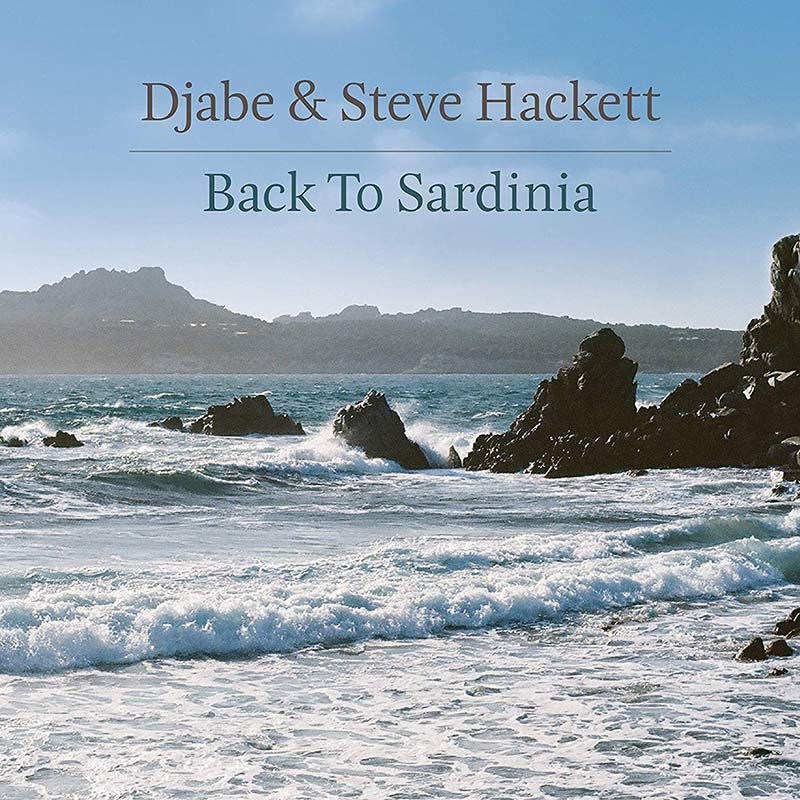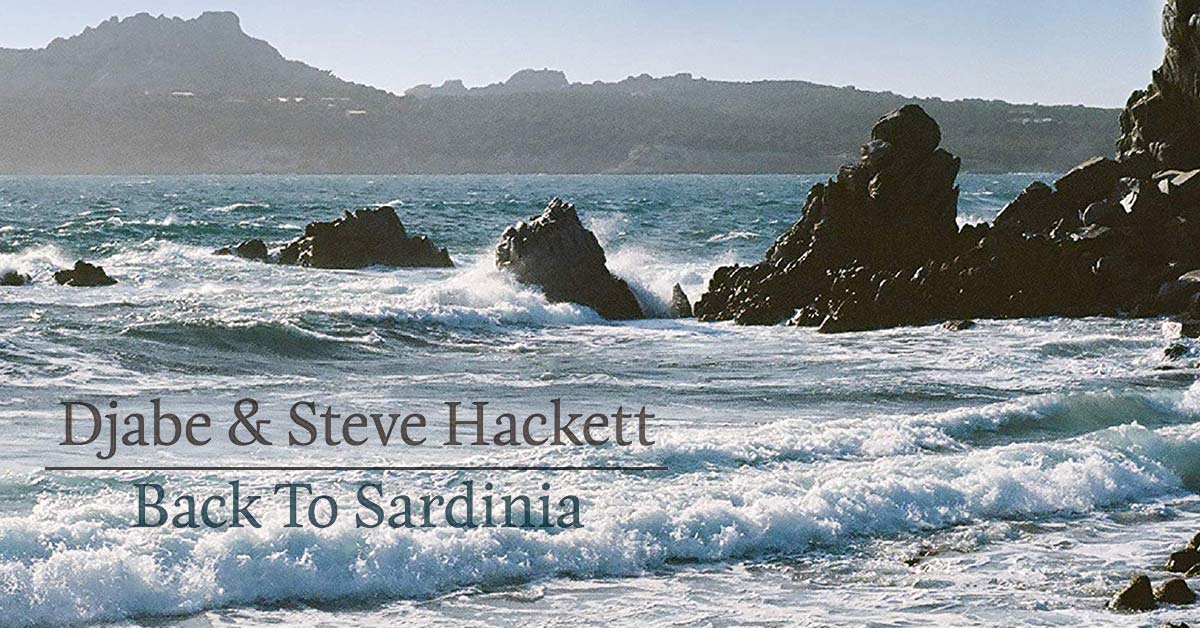- Article
- Read in 4 minutes
Djabe & Steve Hackett – Back To Sardinia – Review
The Hungarian jazz band Djabe and Steve Hackett continue to work together. After Life Is A Journey (2017) the band and Steve have now released their new studio album Back To Sardinia.
Permit us the short cut of repeating part of the introduction text we wrote in our review of the album Life Is A Journey: The Sardinia Tapes:
The collaboration between Steve and Djabe began when Attila took over the distribution of Steve’s albums in Hungary in 1999. In 2002, he set up his first acoustic show in Budapest and produced the album Hungarian Horizons with him. In the year after that, Steve first worked with them on a Djabe album. They have played live together many times and produced songs as well. Steve has called Djabe “the best best I have ever worked with”. In 2016 they met for a joint jam session in Sardinia. The band recorded a remarkable amount of music with Steve in quite a short time; it finally grew into a full studio album that became the first release by Djabe & Steve Hackett, Life Is A Journey: The Sardinia Tapes.
Djabe have released an incredible 25 albums since 1996. Theirs is a different music than Steve’s. Though progressive elements have seeped into their music they are very much about jazz sounds and structures. Steve’s input does not consist of predictable solos in a prog song but in refining a different musical world. It is not really surprising that Zoltan Kemelen, when he reviewed The Sardinia Tapes, called the music the best Steve had released since his early albums. Djabe and Steve Hackett continue on this way. There were sessions on Sardinia again, which made the new album title Back To Sardinia an obvious choice.

Djabe chose to work at the church of Nostra Signore di Tergu, but Steve’s schedule did not permit joining them there. He recorded his parts some weeks later in Budapest. So the approach of this album was different in that Steve added his parts to existing recordings.
The release comes in a CD/DVD digipak that adds a 5.1 surround sound version. The CD contains the album, while the bonus DVD has the surround sound version as well as visual extras.
The album contains these tracks (tracks marked with an asterisk are without Steve Hackett):
Back To Sardinia
Lonely Cactus
Happy Tergu
Lake By The Sea
Stones And Mirto*
Girl In The Palau Woods
Walking Around
Flying Kites
Purple Dream
Dancing In A Jar*
Cinquecento Fragole
Bottles In The Water*
Floating Boat
A playtime of 78 minutes makes this almost a double album. Back To Sardinia continues almost seamlessly where 2017’s Life Is A Journey left off. Djabe are no funky jazz combo, they go for a dapper sound and play in a calm fashion. Back To Sardinia leaves enough space for each musician to shine.
It was interesting to hear how the fact that there were separate recording sessions (Steve recorded his parts later) would influence the music. Steve was not involved directly in the creation of the music, but added his music to recordings that had been completed otherwise- quite a different approach from a jam session. It must be said, though, that Djabe also built some of the recordings of the 2019 around Steve’s guitar parts. This was Tamas Barabas’s job once more.
All doubts and questions are gone when the music begins. The band approach the album slowly with the title track Back To Sardinia and Lonely Cactus; Steve’s striking guitar play is more than a welcome addition. The first 25 minutes of the album are jazz on a very high level, and you can hear how much the band enjoy playing. Then Girl In The Palau Woods begins and you get the impression that the musicians take turns unleashing each other. The piece after that, Walking Around, is something like the reduced version of The Girl… These are some of the strongest moments on the album.
In terms of this album, Dancing In The Jar is almost freestyle jazz. You can even hear some Western sounds (Steve does not play on this). Cinquecento Fragole is a real lucky bag. It begins with a harmless theme and rhythm before the piano takes over and improvises. The piece picks up speed in a very hectic fashion towards the end. Floating Boatreturns to the basic mood of the album. After the sounds of breaking waves at the end a little gimmick has been added, a discussion between Steve and the band. Incidentally, Floating Boat was written during the first sessions in 2016 and completed for Back To Sardinia.
Bonus-Material
When The Film Is Rollingis a kind of amateur movie about Sardinia at the time of the recordings. We see the band during their sessions, too, but mainly it’s impressions of the island.
In The Quiet Earth shows impressively how the music of Genesis can work with Djabe. A trumpet would probably not be your first choice for this track, but it works very well and gives the prog track a big breath of fresh jazzy air.
Castelsardo At Night (from the previous album) shows how good the band can play and improvise with Steve. We see the same, sans Steve, on Turtle Track, which also has some vocals (you can also find this on the OverflowCD/DVD set by Djabe). These impressions give you an appetite for more, and luckily, there is more. Life Is A Journey: The Budapest Live Tapes is a recording of the shows Djabe and Steve played after Life Is A Journey: The Sardinia Tapes, and we highly recommend it!
There is a hidden feature, too. Steve speaks (on the phone, apparently) about the creation of Life Is A Journey, and offers a glimpse at the fascinating way the album came about.
All in all:
Back To Sardiniapicks up where Life Is A Journeyleft off, without losing an ounce of quality. It is, as Steve puts it in the hidden feature, a kind of ambient jazz where no one has to prove their talent on the spot. There are other moments where the band let their hair down. His records with Djabe are a new form of music in the world of Steve, who truly has accomplished much in many different genres. Perhaps it is simply true that his work with Djabe ranks with his best work.
by Christian Gerhardts (11/2019), English by Martin Klinkhardt
Back To Sardinia is released on December 6, 2019.
You can buy it from AmazonUK and CherryRed.
A number of special editions are also available from Djabe’s shop.

